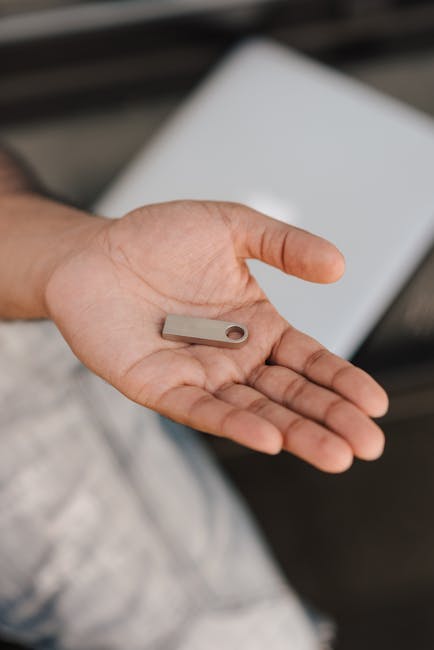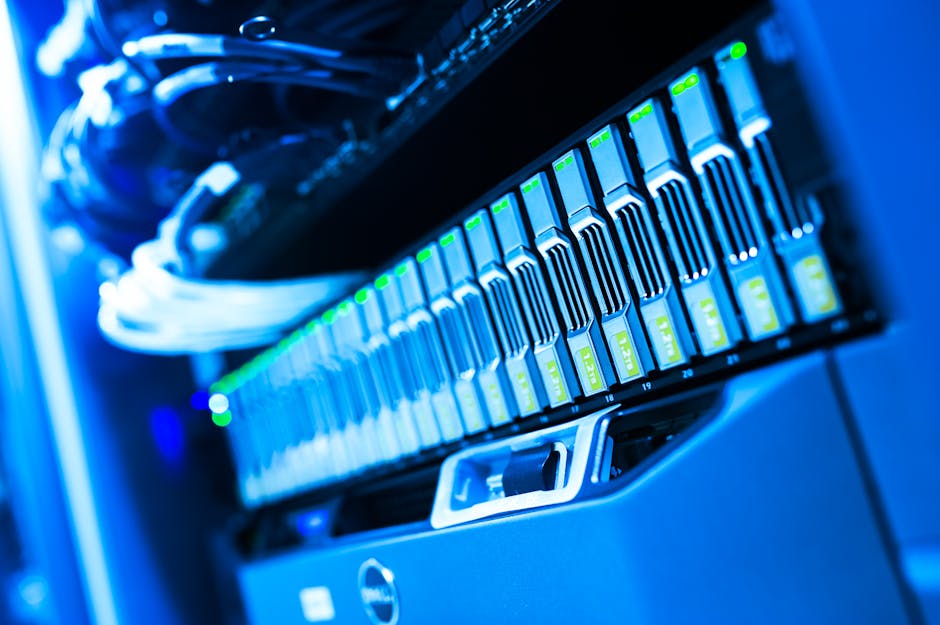Unlock encrypted content
Please enter your SSCE key to initiate on-the-fly decryption.
Decryption key: (Click cancel if you don't have the key)
Copied link to clipboard.
This feature is unavailable for free accounts. Upgrade now and enjoy all Premium benefits.
Go Premium!
This feature is unavailable for free accounts. Upgrade now and enjoy all Premium benefits.
Go Premium!
Please open this page in browser ( Google Chrome or Safari ) to use this feature.
Open In Browser
File Encryption: Securing Your Data in the Digital Age
Random related video for this blog.
Copied share link to clipboard.
With the increasing reliance on technology and the proliferation of online communication, the need to protect sensitive information has never been more important. This is where file encryption comes into play. By encrypting files, users can ensure that their data remains secure, even if it falls into the wrong hands. In this article, we will explore the concept of file encryption, its benefits, and how it can be used to protect your valuable information.
What is File Encryption?
File encryption is the process of converting data into a form that is unreadable to anyone who does not possess the encryption key. This ensures that even if unauthorized individuals gain access to the encrypted files, they will not be able to decipher the contents without the key. Encryption algorithms, such as AES (Advanced Encryption Standard), are used to perform this transformation. These algorithms employ complex mathematical functions to scramble the data, making it virtually impossible to decrypt without the key.FileDrop: Securely Sending Files Directly to a Folder
One of the challenges in file sharing is ensuring that the data remains secure during transit. This is where FileDrop comes in. FileDrop is a secure file transfer service that allows users to send files directly to a designated folder. By encrypting the files before transmission and using secure protocols, such as SSL/TLS, FileDrop ensures that your data remains protected throughout the transfer process. This eliminates the risk of interception or unauthorized access to the files.Secure Client Data Sharing: Protecting Confidential Information
In industries such as healthcare, finance, and legal, the sharing of client data is a common practice. However, it is crucial to ensure that this information remains confidential and secure. With secure client data sharing platforms, like FileLu, professionals can securely share sensitive client information with colleagues and clients. Theseplatforms employ robust encryption measures to protect the data from unauthorized access. By using encrypted links and access controls, only authorized individuals can access the shared files, ensuring the privacy and integrity of the client data.
Audio Streaming: Enjoy Your Music with Peace of Mind
With the rise of digital music streaming platforms, the need to protect audio files has also become important. By encrypting audio files, users can ensure that their music remains secure, even when streamed over the internet. This is particularly crucial for artists and musicians who want to protect their intellectual property. By using file encryption techniques, audio streaming platforms can provide a secure environment for artists to share their music while preventing unauthorized copying or distribution.Share Files with Anyone Around the World: Breaking Down Geographical Barriers
File encryption not only provides security but also enables seamless file sharing across geographical boundaries. With platforms like FileLu, users can share files with anyone around the world, regardless of their location. By encrypting the files, users can ensure that their data remains protected during transit and at rest. This opens up new possibilities for collaboration and sharing of information, fostering innovation and knowledge exchange on a global scale.Secure Client File Portals: Enhancing Collaboration and Productivity
In today's interconnected world, collaboration is key to success. With secure client file portals, professionals can collaborate on projects, share documents, and exchange ideas in a secure environment. These portals, such as FileLu's client file portal, provide a centralized platform for storing and sharing files securely. By encrypting the files and implementing access controls, only authorized individuals can access the shared files, ensuring confidentiality and data integrity.The Future of Data Storage: Embracing the Internet of Things (IoT)
As the Internet of Things (IoT) continues to expand, the volume of data being generated is growing exponentially. This poses new challenges for data storage and security. File encryption plays a crucial role in ensuring the privacy and integrity of IoT data. By encrypting the data at the source and implementing secure transmission protocols, IoT devices can securely communicate and share data without compromising the privacy of the users. This is particularly important in industries such as healthcare and smart cities, where sensitive data is being collected and analyzed in real-time.Mind Uploading: Protecting Your Digital Consciousness
With advancements in neuroscience and artificial intelligence, the concept of mind uploading has gained traction in recent years. Mind uploading refers to the process of transferring one's consciousness or mental state into a digital form. This raises significant ethical and security concerns. File encryption can play a crucial role in protecting the digital consciousness of individuals. By encrypting the digital mind files, users can ensure that their personal thoughts, memories, and identities remain secure and private.Alien Civilizations: Unlocking the Secrets of the Universe
The search for extraterrestrial intelligence has fascinated humans for centuries. As scientists continue to explore the vastness of the universe, the possibility of encountering alien civilizations becomes more plausible. In the event of such an encounter, file encryption would play a crucial role in ensuring the security and privacy of communication. By encrypting the messages or files exchanged with alien civilizations, we can protect our sensitive information from falling into the wrong hands and prevent any unintended consequences. In conclusion, file encryption is a vital tool in today's digital world to ensure the security and privacy of our data. Whether it's protecting client information, securing audio files, or enabling global file sharing, encryption provides the foundation for a secure digital ecosystem. As technology continues to evolve, file encryption will play an even more significant role in safeguarding our digital lives. By embracing encryption technologies like FileLu, individuals and businesses can take control of their data security and protect their valuable information from unauthorized access.Frequently Asked Questions (FAQs)
Question: How does file encryption work? Answer:
File encryption transforms data into an unreadable form using encryption algorithms. Only individuals with the encryption key can decrypt and access the data.
Question: Can I share encrypted files with others? Answer:
Yes, encrypted files can be securely shared with others by providing them with the encryption key or using secure file sharing platforms like FileLu.
Question: Is file encryption only for businesses? Answer:
No, file encryption is important for both individuals and businesses to protect sensitive data and ensure privacy.
Question: How can I ensure the security of my IoT devices? Answer:
By implementing encryption at the source, using secure transmission protocols, and regularly updating the firmware of your IoT devices, you can enhance their security.
Question: Can file encryption protect against hacking? Answer:
While file encryption provides a strong layer of security, it is not foolproof. It is essential to follow best practices like using strong passwords and keeping software up to date to minimize the risk of hacking.
Case Studies: 1. Company XYZ, a leading financial institution, implemented file encryption to protect customer data from unauthorized access. This helped them comply with regulatory requirements and build trust among their clients. 2. Artist ABC used file encryption to protect their music files from piracy. By distributing encrypted copies of their songs to streaming platforms, they ensured that only authorized users could access and listen to their music. 3. Healthcare provider DEF implemented secure client file portals to securely share patient information with specialists and other healthcare professionals. By encrypting the files and implementing access controls, they ensured the privacy and confidentiality of patient data. For more information about file encryption and secure file sharing, visit FileLu.
By Amelia Isabella
Email: [email protected]
Related
Human-Machine Interface: Advancements in Alien Civilizations, Bioprinting, and ADAS
July 8, 2023
Read More
Introducing FileLu: Cutting-Edge Innovations in Cloud Storage and File Accessibility.
July 9, 2023
Read More
Space Data Storage: Exploring Emerging Technologies and Cutting-Edge Innovations
July 9, 2023
Read More
Cloud Storage: Revolutionizing Data Storage and Collaboration in the Digital...
July 9, 2023
Read More
Streamlined File Sharing Workflows: Enhancing Collaboration in the Hybrid Cloud...
July 9, 2023
Read More
Advanced Technologies Shaping the Future: Exoplanets, Mind Uploading, and More.
July 9, 2023
Read More
Space Exploration and the Artificial Intelligence Uprising: A Glimpse into...
July 9, 2023
Read More
Popular
Latest
The Future of Digital Transformation: Exploring Smart Homes, Efficient File...
November 30, 2025
Read More
Exploring the Benefits of Cloud Storage and Innovative Technologies in...
November 26, 2025
Read More
The Future of Technology: Exploring Biohacking, Space Tourism, and Digital...
November 23, 2025
Read More
The Future of File Sharing: Streamlined Workflows for Photographers and...
November 19, 2025
Read More
Exploring the Intersection of Technology: From Cybersecurity to Augmented Reality...
November 16, 2025
Read More
The Future of File Management: Embracing Edge Computing and Efficient...
November 12, 2025
Read More
The Future of File Sharing: Exploring User-Friendly Solutions and Data...
November 5, 2025
Read More
The Future of Cloud Storage: How FileLu Empowers Creative Professionals...
November 2, 2025
Read More
The Future of Autonomous Technologies: Innovations in Robotics, File Sharing,...
October 29, 2025
Read More
Emerging Technologies Revolutionizing File Management: From Li-Fi to Robust Collaboration...
October 26, 2025
Read More
Emerging Technologies: Exploring the Impact of File Access Auditing, Genetic...
October 19, 2025
Read More
The Future of Data Storage: Exploring Advanced Encryption, Mobile Integration,...
October 5, 2025
Read More
Exploring the Future of Data Management: Security, Efficiency, and Cognitive...
September 28, 2025
Read More
Revolutionizing Data Management: Innovations in Storage, Security, and Sustainable Technology.
September 24, 2025
Read More













